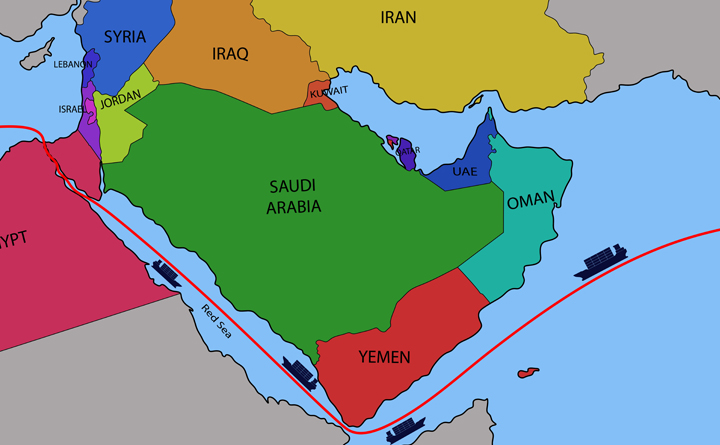Understanding Supply Delays from Red Sea Shipping Attacks
Understanding Supply Delays from Red Sea Shipping Attacks. In the vast expanse of global trade routes, few waterways hold as much strategic importance as the Red Sea. Connecting the Mediterranean Sea to the Indian Ocean via the Suez Canal, it serves as a vital artery for maritime commerce, facilitating the movement of goods between Europe, Asia, and Africa. However, recent events have underscored the fragility of this crucial lifeline, with shipping attacks disrupting supply chains and causing significant delays.
In recent months, the Red Sea has been a hotspot for maritime insecurity, primarily due to the escalation of attacks on commercial vessels. These attacks, often carried out by militant groups or state-sponsored actors, range from sabotage and piracy to outright blockades, posing a serious threat to the uninterrupted flow of goods.
The repercussions of these incidents ripple throughout the global economy, impacting industries far beyond the immediate vicinity of the Red Sea. Supply chains, already strained by the lingering effects of the COVID-19 pandemic, face further challenges as vessels are forced to reroute or halt operations entirely in response to heightened security risks.
One of the most significant consequences of these supply chain disruptions is the delay in the delivery of essential goods. From consumer electronics to automotive parts and medical supplies, countless products rely on efficient maritime transport to reach their destinations. However, with shipping lanes in the Red Sea becoming increasingly perilous, manufacturers and retailers are left grappling with uncertainty and logistical headaches.
The impact of supply delays reverberates across industries, affecting businesses of all sizes. Small businesses, already operating on thin margins, may find themselves unable to fulfill orders or meet customer demands, risking reputational damage and lost revenue. Larger corporations, while better equipped to weather disruptions, still face mounting costs as they scramble to find alternative shipping routes or expedited transportation solutions.
Beyond the immediate financial implications, supply delays from Red Sea shipping attacks highlight broader concerns about global security and geopolitical stability. The Red Sea region, a focal point of geopolitical rivalries and regional conflicts, serves as a microcosm of larger power dynamics on the world stage. Tensions between state actors, proxy conflicts, and the proliferation of non-state armed groups all contribute to the volatile mix of factors shaping maritime security in the region.
Addressing the root causes of maritime insecurity in the Red Sea requires a multifaceted approach that encompasses diplomatic, economic, and security measures. International cooperation and dialogue are essential in fostering stability and deterring acts of aggression against commercial shipping. Strengthening maritime security capabilities, enhancing intelligence-sharing mechanisms, and promoting adherence to international norms and regulations can help mitigate the risk posed by maritime threats.
In the face of ongoing challenges, businesses must adopt a proactive stance towards supply chain resilience. Diversification of transportation routes, robust risk management strategies, and investment in alternative modes of transport such as air freight or rail transport can help mitigate the impact of disruptions caused by shipping attacks.
Ultimately, the recent spate of supply delays stemming from Red Sea shipping attacks serves as a stark reminder of the interconnected nature of the global economy and the vulnerabilities inherent in our reliance on maritime trade routes. As stakeholders across the public and private sectors grapple with these challenges, collaboration and innovation will be essential in navigating the turbulent waters ahead.
About this Blog
If you have any questions about this blog or the current timelines for shipping, please contact us via our website at www.uneek-group.com
Address: Uneek House, Amberley Way, Hounslow, Middlesex, TW4 6BH
Call: +44 (0) 20 8569 4949
E-mail: [email protected]
Website: www.uneek-group.com
Blog Title: Understanding Supply Delays from Red Sea Shipping Attacks
Blog Author: Mark Watts

